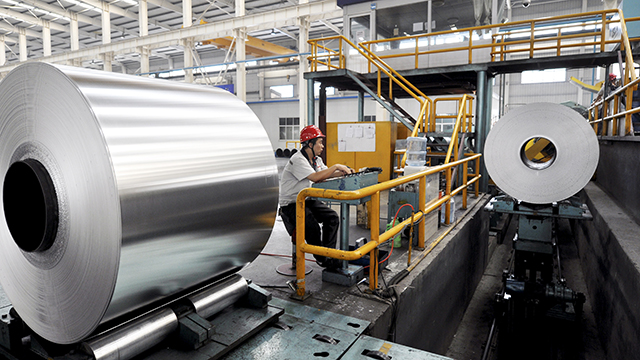This post first appeared at Demos.

Last year, The Daily Show hilariously lampooned the Goldman Sachs “merry-go-round of metal” in which the firm uses its ownership of the major Midwest aluminum warehouse (think auto manufacturing and beer) to slow availability of supply, with a predictable effect on prices. The term “merry-go-round of metal” was coined by a forklift operator moving supply from one place to another to lengthen the queue for shipment, in a Monty-Python style absurd operation; quite a funny image except, of course, that Goldman seems to be robbing the industries that use aluminum blind. The Daily Show piece is brilliant and wickedly sharp, but now it is time to get serious.
Today, the formidable Senate Permanent Subcommittee on Investigations under the equally formidable Sen. Carl Levin (D-MI), a senator who will be sorely missed after his January retirement, commences hearings on bank involvement with physical commodities — oil, gas, electricity, metals and others. The Subcommittee put out a 400-page report (plus 800 pages of exhibits), using four case studies involving JP Morgan and Morgan Stanley, but Goldman drew the short straw and its aluminum operation will be featured in the hearing.
Do not be distracted that Goldman’s business is a mere warehouse. With physical commodities, transport and storage can be critically important. John D. Rockefeller did not become the richest man ever by picking good wells to drill; he was shrewd enough to control the transport of oil to the East Coast.
Let’s start with the fact that dealing in physical commodities is what the subcommittee is examining. But the banks’ involvement in the financial derivatives markets is what makes this most interesting. Banks can make bets on future prices of all commodities and then use involvement in the physical markets to influence results. The report says that “the financial companies often traded in both the physical and financial markets at the same time, with respect to the same commodities, frequently using the same traders on the same trading desk.”
The analog in the securities markets is insider trading; but there is no law against insider trading in commodities. Yes, that is true. It is the perfect environment for Goldman/JP Morgan/Morgan Stanley to exploit their massive technological and quantitative advantages and their cheap, government subsidized capital. What a lovely place for an oligopoly!
And how nice for the oligopoly that Congress and the regulators have been so accommodating! The 1999 Gramm-Leach-Bliley Act, that unleashed Enron and derivatives generally on the American people, also created a loophole to the long-standing rule that banks should stay out of commercial activities. JP Morgan was operating under a grandfather provision and Goldman and Morgan Stanley got the right to continue their commercial activities if ever they became banks. Sure enough, in 2008 they became banks, a necessary step that allowed the American people to bail them out.
But the Fed has made matters much worse. It administers the commodity loophole and has done so with vagueness and a willingness to interpret every issue in favor of the banks.
The scams alleged in the report are more important than simple rip-offs of the public. The separation of banks and commercial activity has its origin in the Robber Baron Trusts that were famously busted by Teddy Roosevelt. Banks had become active owners of businesses by assembling ownership interests in trusts that conjoined businesses that could then work cooperatively to control supply and demand and price. Not surprisingly, new Anti-Trust Law, the Federal Reserve and the Federal Income Tax eventually grew out of the trust shenanigans.
But the real triggering event was the Bank Panic of 1907, an event similar to 2008. In the recent crisis, the complexity of the mortgage market made it impossible to know what banks were worth when real estate prices fell. In 1907, the credit standings of the banks became obscure because of complex involvement with commerce during a sharp recession. Here we go again.
The hearings inevitably are deep into the intricacies of price manipulation in the aluminum markets. Had the hearings involved electricity, oil, gas or other industrial input, it would be just as complicated. Each has an unbelievably complex pricing system that is infested with price manipulation that the public pays for.
But it is critical that we hold onto the basic principle: it is both bad for the economy and dangerous to allow the financial sector to enter the commercial sector and compete. It is bad enough that the commodities markets are filled with bad actors that increase the burdens on households. But to allow banks to participate in — actually dominate — this brutal and opaque marketplace is both costly to the public and dangerous.
Watch The Daily Show episode below:


